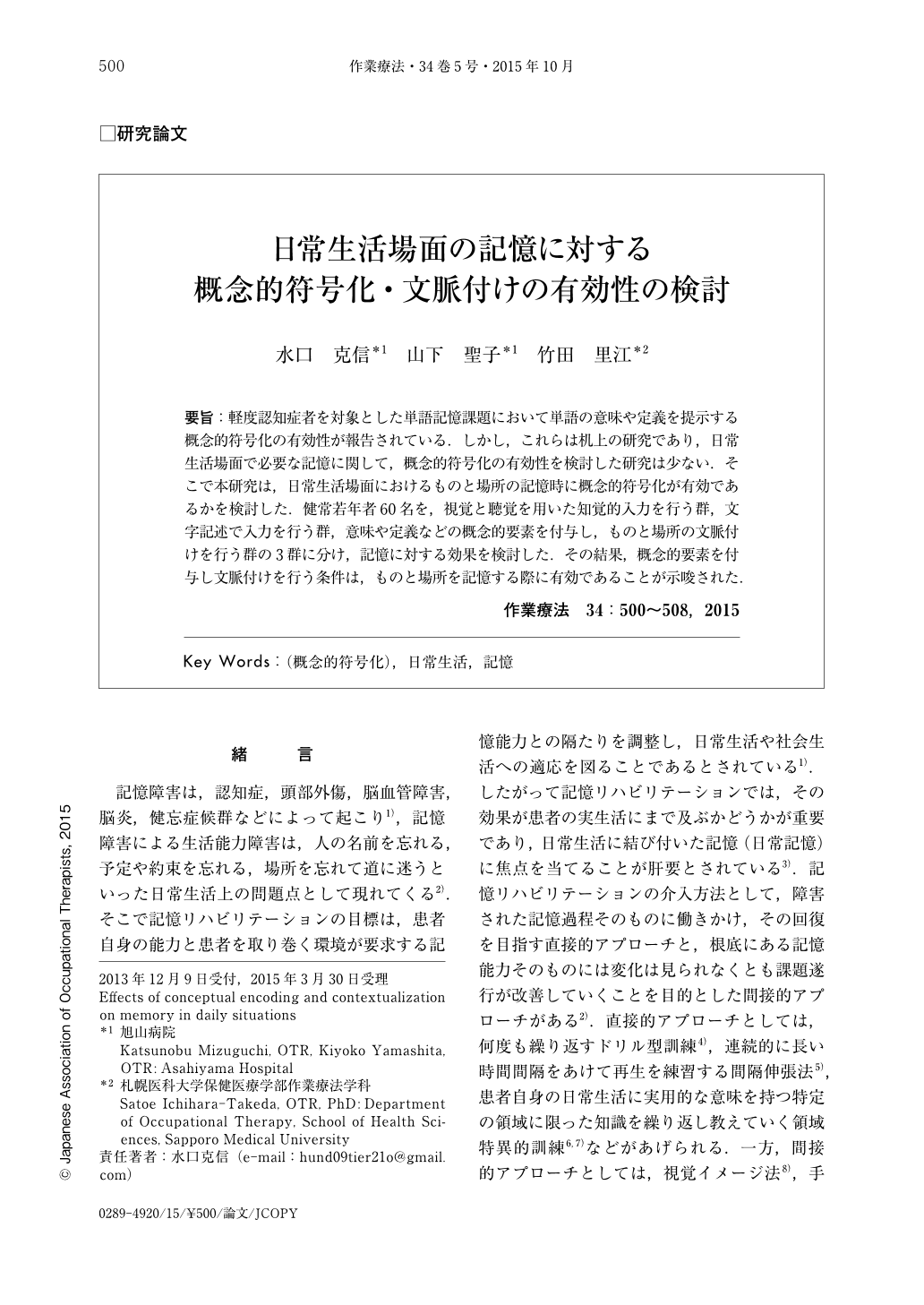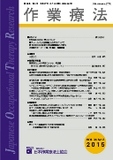Japanese
English
- 販売していません
- Abstract 文献概要
- 1ページ目 Look Inside
- 参考文献 Reference
要旨:軽度認知症者を対象とした単語記憶課題において単語の意味や定義を提示する概念的符号化の有効性が報告されている.しかし,これらは机上の研究であり,日常生活場面で必要な記憶に関して,概念的符号化の有効性を検討した研究は少ない.そこで本研究は,日常生活場面におけるものと場所の記憶時に概念的符号化が有効であるかを検討した.健常若年者60名を,視覚と聴覚を用いた知覚的入力を行う群,文字記述で入力を行う群,意味や定義などの概念的要素を付与し,ものと場所の文脈付けを行う群の3群に分け,記憶に対する効果を検討した.その結果,概念的要素を付与し文脈付けを行う条件は,ものと場所を記憶する際に有効であることが示唆された.
Recent studies have shown the usefulness of conceptual encoding on memory of words in people with mild dementia, and that the conceptual encoding aided memory in experimental situations such as word memory training. However, little is known about the effects of memory in daily situations. In the present study, we examined the effect of conceptual encoding on the memory of objects and their location in daily situations. 60 healthy young subjects were divided into the three therapeutic groups: perceptual encoding, writing encoding, and conceptual encoding and contextualization. As a result, the recall of objects and their location differed significantly between the perceptual encoding group and conceptual encoding group and contextualization. There were many people who attested to the effectiveness of conceptual encoding and contextualization. These results suggest that the conceptual encoding and contextualization positively affected memory in daily situations.

Copyright © 2015, Japanese Association of Occupational Therapists. All rights reserved.


